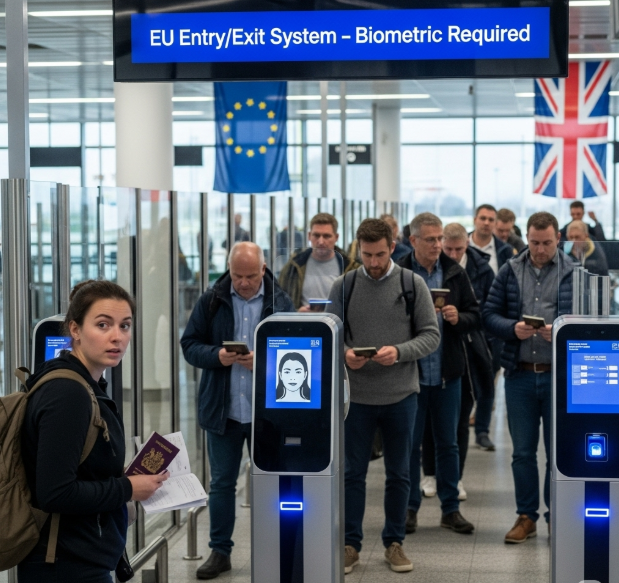Starting October 12, 2025, UK travelers heading to 29 Schengen countries—including Italy, France, Germany, Greece, and Spain—will encounter the European Union’s new Entry/Exit System (EES) at border crossings. The EES replaces traditional passport stamping with a digital registration process requiring non-EU visitors, such as British tourists, to provide biometric data (fingerprints and a facial photograph) upon entry and exit. This new procedure aims to strengthen security and ensure compliance with the 90-day-in-180 rule for short-term visits, but is expected to cause noticeably longer wait times at airports, ports, and railway stations, particularly during the initial rollout.
The transition will be phased: while biometrics collection and digital registration will begin in October 2025, only a portion of border posts will be fully operational at first, with full coverage slated for April 2026. For UK travelers, the first visit under EES involves registering biometrics, and subsequent visits may be easier—only a facial photo may be required for up to three years, unless a new passport is used. Travelers passing through key UK departure points like Dover, Eurotunnel, and St Pancras may have their biometric data recorded before departing, which could help ease flows at arrival destinations.
Authorities and travel experts warn that the initial introduction could see queues move up to four times more slowly than current manual passport stamping—in worst cases, border waits of several hours could occur if demand exceeds processing capacity. Infrastructure investments at key UK–EU crossings aim to mitigate delays, and border officers may have discretion to reduce the number of travelers processed if lines become unmanageable. Information campaigns are planned to ensure travelers know the new rules and required steps.
Key Points:
- From 12 October 2025, UK travelers to Schengen countries must submit biometric data at the border as EES is phased in.
- Expect longer queues and delays while the new process is implemented, especially through early 2026.
- The previous passport stamping system will be gradually phased out in favor of digital tracking.
- Major crossings such as Dover, Eurotunnel, and St Pancras will play a key role in initial UK registrations.


















More Stories
Toronto Tourism Smashes Records: 28.2M Visitors Power $13.5B Economy
US Airlines Battle for 2026 Skies: Premium Profits Soar
Albania Tourism Booms 2025 12.47M Visitors Despite Challenges!